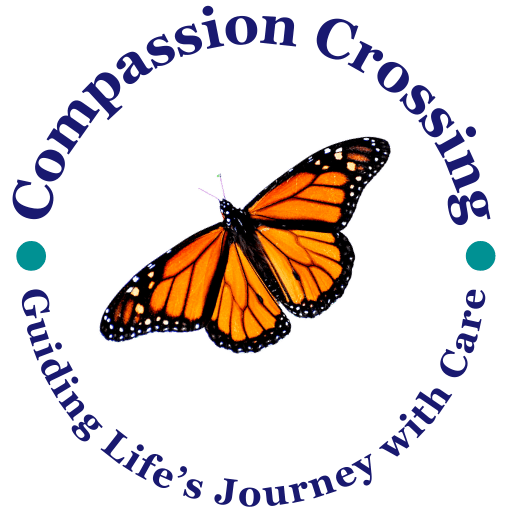Nebulized Morphine: A New Approach to Managing Shortness of Breath in Hospice Care
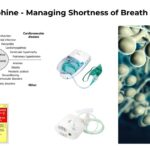
Nebulized morphine provides significant relief for patients with severe breathlessness, especially in end-stage pulmonary diseases. Learn about its application, dosage, and benefits in hospice care.
When Treatment Conflicts with Values: Why Planning Your Care Goals Before Illness Is Critical

New research reveals that 37% of advanced cancer patients feel their treatment doesn't match their personal care goals—nearly twice the rate of other serious illnesses. This disconnect highlights our healthcare system's focus on fixing problems after they occur, without considering comfort or quality of life. Discover why planning your values and care preferences before illness strikes can prevent this misalignment and ensure you receive care that truly honors what matters most to you.
Nurturing the Nurturer: A Comprehensive Guide to Self-Care for Dementia Caregivers
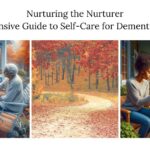
Caring for a loved one with dementia is a challenging journey that can take a toll on caregivers' physical and emotional health. This comprehensive guide offers practical strategies for dementia caregivers to prioritize self-care, manage stress, and maintain their well-being while providing compassionate care for their loved ones.
A Comprehensive Guide to Diabetes Management for Loved Ones with Dementia

Discover essential strategies for managing diabetes in loved ones with dementia. This comprehensive guide covers blood sugar monitoring, medication administration, diet management, and recognizing emergencies, empowering caregivers to provide optimal care.
Breathing Support Decisions at End-of-Life: When Comfort Matters More Than Time

Facing difficult decisions about breathing support at the end of life? Understand the differences between BIPAP, intubation, and ventilators. Learn how complete advance directives guide families toward comfort-focused care and how end-of-life doulas provide affordable, compassionate support during these challenging choices.
Revolutionizing Comfort: The Role of Macy Catheters in Hospice and Palliative Care

Discover the transformative role of Macy catheters in hospice and palliative care. This comprehensive guide explores how these innovative devices enhance patient comfort, simplify medication administration, and support caregivers. Learn about their benefits, proper use, and impact on the quality of life for those receiving end-of-life care.
When Is It Time? A Guide to Considering Hospice Care for Your Loved One with Dementia

Deciding when to involve hospice care for a loved one with dementia can be challenging. This comprehensive guide helps non-healthcare professionals recognize the signs that indicate it's time to consider hospice, understand the benefits of hospice care, and navigate the decision-making process with compassion and informed judgment.
Healing Touch: How MNRI Transforms End-of-Life Support for Grief and Trauma
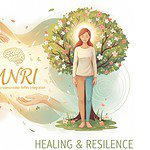
End-of-life doulas play a crucial role in supporting families through grief and trauma. Learn how Masgutova Neurosensorimotor Reflex Integration (MNRI) offers powerful, gentle techniques to help clients process difficult emotions and find healing during life transitions.
How SupportNow.org Transforms Support for Families Facing End-of-Life Challenges

Learn how SupportNow.org can transform the way end-of-life doulas, caregivers, and families coordinate practical support during life's most challenging moments. This free platform brings together financial help, meal coordination, volunteer assistance, and family updates in one simple place.
Mastering IDT Notes: How the PIE Method Transforms Hospice Documentation

Discover how the PIE method (Problem-Intervention-Evaluation) can transform your hospice IDT note writing. This simple framework helps nurses create focused, compliant documentation even when patients are stable and well-managed.
How End-of-Life Doula Training Creates Better Hospice Experiences for Patients and Families

End-of-life doulas are transforming hospice care quality through specialized training and collaborative partnerships. Learn how these compassionate professionals enhance patient experiences, support families, and improve hospice satisfaction scores when properly integrated into care teams.
The Hidden Reality of Dialysis: Understanding Life Support, Quality of Life, and Planning Ahead

Dialysis is a choice, not a requirement for end-stage kidney disease. While this life support treatment can extend life, it significantly impacts quality of life through fatigue, time constraints, and physical challenges. You have the right to choose comfort care and hospice instead. Learn why discussing dialysis preferences should be part of every living will and how end-of-life doulas can help navigate these important decisions.
When Time Becomes Finite: Navigating the Emotional Aftermath of a Terminal Diagnosis

A terminal diagnosis sends shockwaves through the lives of patients and their loved ones. This article delves into the trauma experienced by all involved, examining the intricate challenges faced by hospice and palliative care providers in offering compassionate support while navigating the complex emotional landscape of end-of-life care.
Navigating the Minefield: Potentially Inappropriate Medications in Geriatric and End-of-Life Care

Delve into the complexities of potentially inappropriate medications (PIMs) for older adults, especially those in hospice and palliative care. This comprehensive guide explores identification, risks, and alternatives to PIMs, providing valuable insights for healthcare professionals to enhance medication safety and quality of life for geriatric patients.
When Death Comes Unexpectedly: Why Being Prepared Matters More Than Ever
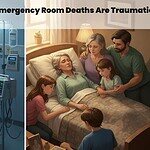
Every year, thousands die in emergency departments unprepared for death. Sudden death in hospitals can be especially shocking for patients and families who haven't planned ahead. This guide highlights why preparation is important and describes how end-of-life doulas can assist.
The Adult Priority You Can’t Afford to Skip: Your Complete Advance Directive
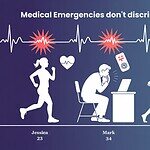
If you're 18 or older without an advance directive, you're putting yourself and your loved ones at risk. This comprehensive guide explains why every adult—regardless of age—should prioritize creating a thorough living will reviewed every 3-6 months, and how end-of-life doulas can help.
How a Well-Planned Vigil Transforms the Final Journey for Everyone Involved

Learn why planning a death vigil early with an end-of-life doula creates meaningful final moments, reduces family stress, and helps prevent complicated grief. Discover the profound benefits of this sacred practice for everyone involved.
Staying Connected Through Health Journeys: A CaringBridge Guide for Families and End-of-Life Doulas

Discover how CaringBridge helps families and end-of-life doulas stay connected during health journeys. This free platform offers privacy controls, easy updates, and community support for chronic illness, terminal illness, and life transitions.
When Family Goes Silent: Finding Help When Loved Ones Won’t Step Up

Primary caregivers often face difficult emotions of isolation when loved ones step back during a chronic or terminal illness. This article thoughtfully addresses these feelings, delves into the reasons for this distance, and provides constructive communication strategies to foster reconnection with hesitant family members. It also highlights alternative support avenues for caregivers, ensuring they feel valued and supported.
Enhancing Patient Care: Recognizing Subtle Changes in Level of Consciousness for Hospice and Palliative Nurses
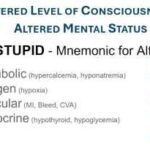
Discover essential techniques for hospice and palliative care nurses to identify subtle changes in patients' level of consciousness. This comprehensive guide covers assessment methods, red flags, and best practices for enhancing patient care—valuable insights for neurological nursing specialists and those aspiring to specialize in this field.
Safeguarding Seniors: Essential Monitoring of High-Risk Medications in Geriatric Care

Understanding the potential risks associated with certain medications in the geriatric population is crucial. This article explores the top five medication classes that require close monitoring to reduce the incidence of syncope, falls, and mortality events in older adults. Learn how to optimize medication management for safer patient care.
Safeguarding Geriatric Health: The Crucial Role of Regular BEERS Criteria Reviews

The BEERS Criteria is vital for improving medication safety in older adults. This article explores the importance of regularly reviewing these guidelines, discussing the frequency of reviews, the potential risks of inappropriate medications, and how healthcare providers can implement effective medication management strategies for geriatric patients.
Hospice General Inpatient Care: Transforming End-of-Life Experiences Through Real-World Case Studies

Dive into hospice General Inpatient (GIP) care through real-life case studies. Discover how GIP can support patients with complex symptoms, learn about eligibility criteria, and understand why this valuable hospice benefit remains underutilized.
When Goodbye Isn’t Clear: Understanding and Healing from Ambiguous Loss

Ambiguous loss is a type of grief that happens when loss feels unclear or unfinished. Unlike traditional grief, this emotional pain lacks closure, making it harder to process. Learn to recognize the signs of ambiguous loss and discover practical healing strategies to help you move forward with hope.
